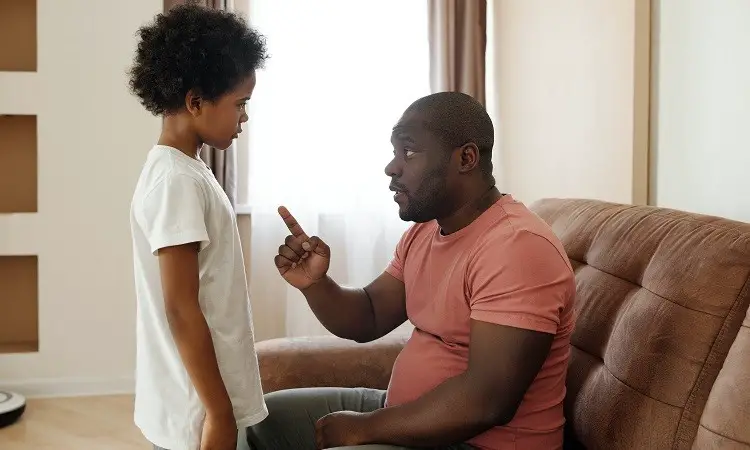The safety of every child in a family should be the paramount duty of every parent, the duty of parenting isn’t easy hence one must be prepared before embarking on that phase of life.
As a parent or caregiver, your job isn’t complete if don’t know the basic safety rules every child should know to enable them to develop, grow and learn, and become independent, capable characters.
We all know family is the first line of protection for every child. So as parents or caregivers it is you’re responsible to create a healthy and safe environment to train your child on basic safety skills that’ll carry him/her all through their lives.
In this article, we will discuss 15 safety rules every child should know either at school or home.
15 Basic Safety Rules Every Child Should Know

The following basic safety rules we mentioned below will help your kids become better equipped and protect themselves in a scary situation both at home and in school.
Parents need to ensure that these basic safety rules are learned by their children so that they know what to do in any situation.
Rule #1 – Teach them to know Your Name, Number, and Address
Your child should know contact details like his or her mum’s and dad’s name and contact number so that the family can be reached in the case of any emergency or dangers.
This safety rule is one of the major safety rules every child should know, it should be at the tip of their finger.
Sometimes we see children who are in real need of help and when the help comes, the helper becomes handicapped because the necessary information need required to assist the child isn’t available.
Additionally, it also doesn’t speak well of a parent that his or her child doesn’t know the parent’s name or contact number, or even contact address.
Every child should be taught these and even the knowledge of a landmark close to their place of residence isn’t a bad idea.
Rule #2 Do Not Talk To or Go Anywhere with Someone You Don’t Know
Every child should be taught that they should never be involved in conversations with strangers and should they be offered any sort of company by strangers, they should decline so that they do not get themselves involved in messy situations.
Your child should be taught that the days are evils and that they could be kidnapped or fall into the hands of bad people if they are always in the habit of communicating with people they do not know.
Children should be taught that words like ‘Your mum asked you to come with me immediately,’ should be ignored if they are coming from strangers and if they are being forced to come along then they should scream out for help.
Always teach your child that if there is any need to send someone to get them if there is ever an emergency, that you will send a grandparent, aunt, or someone they’re familiar with and never a stranger.
Teaching your child a ‘safety word’ that only you and they know isn’t a bad idea too. So if ever there’s a need to send someone your child doesn’t know very well, the safety word the stranger will voice out will help ease your child.
However, be mindful that this can be risky because if an enemy gets hold of that safety word, the child can be kidnapped because they will feel that they are communicating with friends or someone their parents are familiar with.
Rule #3 Do Not Eat or Take Anything From Someone You Don’t Know
This is another important safety rule every child should know. You should teach your child never to accept anything given to him/her by any stranger so that they do not fall into the wrong hands.
They should be taught that it doesn’t speak well of their parents if they do not know how to reject gifts politely when they are offered by strangers even when the stranger means no harm.
Rule #4 If You Ever Get Lost, Stay Where You Are
Kids must be taught that whenever they find themselves lost they shouldn’t be wandering or panicking as that will only create further confusion.
They should be taught that if they are in the supermarket and they can’t find you, they should just go to the counter and ask for help, they must in no circumstances leave on their own.
They should also be taught that if they come to a place with their parents or guardians, and they can’t locate their parent, they can ask a parent with a child to call you by giving out your contact number to the person they are seeking help from.
But they should never go anywhere with a stranger except a law enforcement agent.
Rule #5 Do Not Share Personal Information Online
We all know now that we are in the jet age. Kids are exposed to computers at a younger age these days, so it is paramount that you teach your child online safety lessons.
Children must be taught never to share any information regarding themselves or their families online or on social media. They should be taught that such information could be used in wreaking havoc on the family by fraudsters.
Read Also: Newborn Safety Checklist
Rule #6 Respect Things That Are Dangerous
You should teach your kids that there are certain things they should never play with, to avoid getting themselves injured in the process and these things include matches, knives, and any other dangerous weapons.
You know that kids will always be kids, so while you teach them this safety rule, you should also help them by keeping these things out of their reach.
Rule #7 Your Body Is Yours Only
Your kids should be taught that there are good touches and bad touches and they should be taught that they should report when they are touched inappropriately by anyone to avoid molestation.
Sex education should be part of what you expose your children to so that they are not preyed upon by pedophiles.
Rule #8 Do Not Keep Secrets
This is another healthy safety rule every child should know. Your kids should be assured that you are their best friends and greatest fan and that you have their interests at heart, so they should feel free to confide in you.
They shouldn’t be keeping secrets from you so that they do not get into problems.
On your part as a parent, your kids should have that confidence in you and see you as a friend they can confide and you must learn to keep your children’s secret.
Rule #9 Road Safety
Children are prone to road accidents and injuries, especially if there are alone. You should never let your child play near roads unsupervised to avoid injuries or accidents. You can reduce this risk by teaching them to:
- Before you cross the road, look right, look left, then look right again, and only cross the road if you’re holding the hand of an adult or older person
- Don’t run or play near a road
- Always face the traffic when you’re walking on roads with no sidewalk
- Meaning of each traffic sign and lights
- Step out of the vehicle on the kerbside only
- Always put on a helmet when riding a bicycle, scooter, or skateboard
Rule #10 Teach Them When and how to call 000
It’s not only important you teach your kids how to report an incident to 000, but also when it’s appropriate to do so.
Teach them the possible situations and the basic steps to take, and common roles to play during accidents in and around the home to get them used to making a call.
Read Also: Dos and Don’ts of Raising a Child
Rule #11 Do Not Climb The Fence
Your kid may be playing football and all of a sudden it bounces off to a space inside a fence. Teach your child never to try and retrieve something by climbing through a fence. This is risky and can pose a serious threat to your child’s health.
A better way to teach your child how to handle the situation is to teach them how to ask for help from a grown-up rather than climbing the fence.
Rule #12 Water Safety
Whether or not you have a pool, it’s very important to teach your children about pool safety. You can enroll your child in a swimming class.
Also, you should teach them to stay away from pools, dams, lakes, creeks, or water tanks when no one is there to supervise them and to always swim between the flags.
Rule #13 Do Not Play With Fire
Teach your child never to play with or experiment with fire whether or not you are at home. This should never be allowed only if you are around and have permitted your child to be near the fire. Ensure all the fire sources are safely out of your child’s reach.
Rule #14 Protect Your Skin
Sun safety is one of the healthy safety rules every child should know. Teach your child to cover up on hot days and to always put on sunscreen when going outdoors.
Teaching your child this basic rule will help protect their skin for years to come.
Rule #15 Trust Your Instincts
Teach your child about instinct and how important it is to stay safe. Children should be taught that if ever they feel uncomfortable about anything they have been encouraged to do, they shouldn’t do it!
This could be something easy such as taking off their clothes in front of other people and diving in a home pool.
If your child is uncomfortable about it, no withstanding whether how many of her friends are doing it, they should not do it at all, even if that requires stepping away from her friends in the group.
Related Posts:
- 7 Financial Benefits of Adopting a Child
- How To Deal With a Manipulative Child
- How To Make Your Child Love Studying
- How to install safety 1st cabinet and drawer latches
- How To Tell Your Parents Your Pregnant (4 Tips For Teens)
Conclusion
The above is the list of safety rules every child should know to help them navigate through life. You must teach them these safety rules as soon as they can understand.
Ensure you keep an open conversation with them and talk to them like they’re your friend, rather than in an authoritative manner.
This technique will help your child confide in you more and also encourage them to tell you everything that is going on in their life.
We hope that you found this list of safety rules every child should know helpful, it is now time to go to the drawing table and start doing your homework by making sure that your child knows all these.
